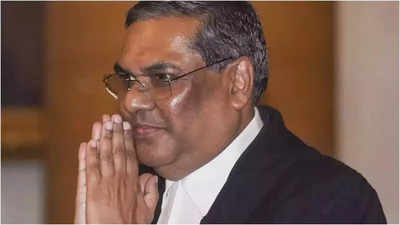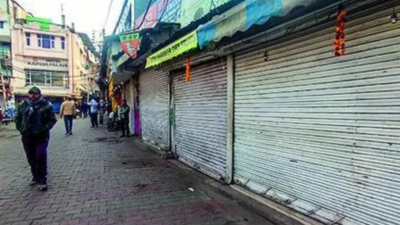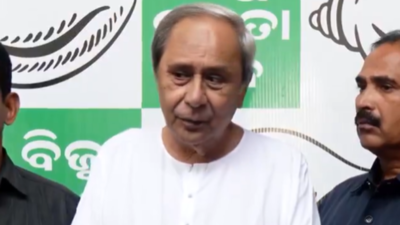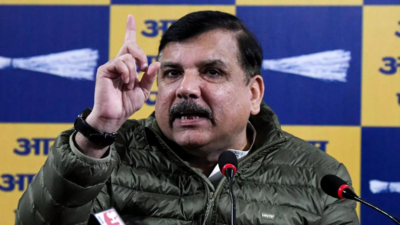
CJI Sanjiv Khanna NEW DELHI: Chief Justice of India Sanjiv Khanna on Tuesday termed human rights as the bedrock of human society, which is imperative for ensuring global peace. Speaking at an event commemorating the 76th anniversary of the Universal Declaration of Human Rights (UDHR), CJI Khanna highlighted the need for further reforms in criminal law. He pointed out the alarming overcrowding in Indian prisons and noted that the number of under-trial prisoners far exceeds the national capacity.
Highlighting the urgent need for change, CJI Khanna said, "Criminal courts require reform. We have decriminalised a lot of laws, but a lot of work remains to be done. Laws require a change.

This becomes important when we look at the number of undertrial prisoners. The national capacity of undertrial prisoners is 4 lakh 36 thousand, but our prisoners are 5 lakh 19 thousand undertrials, which is much more." He also shed light on the "black coat syndrome" during the Human Rights Day 2024 celebrations organised by the National Legal Services Authority (NALSA).
He described the syndrome as the fear and alienation experienced by marginalised communities in their interactions with the legal system, including both judges and lawyers. Justice Khanna called for a compassionate and humane justice system through the simplification and decolonisation of laws. NALSA celebrated 'Human Rights Day- 2024' under the theme 'Every Right, Every Life' at the Supreme Court of India.
The event was graced by CJI Khanna, Justices BR Gavai, Surya Kant, and Arjun Ram Meghwal, Minister of State for Law and Justice (Independent Charge), along with other Supreme Court judges. Law Minister Arjun Ram Meghwal, in his address, said, "Human Rights are not merely abstract ideals, but they are the foundation upon which we build a just society. Today, as we celebrate this day, we honour the work done by organisations, institutions, and individuals who have worked tirelessly to bring these rights into the lived experiences of the most vulnerable and marginalised.
" Justice Surya Kant, who is also the Chairman of the Supreme Court Legal Services Committee commended NALSA for coming up with a special campaign for old prisoners and terminally ill prisoners. He stated that there is a thin line between appropriate and inappropriate detention, and no matter who the incarcerated person is, they should be provided adequate and competent medical care and attention. "Thus, consideration on compassionate grounds is necessary to protect their dignity at this stage of their lives," Justice Kant said.
Justice Gavai, Executive Chairman of NALSA, in his address, spoke of the constitutional guarantees and promises in reference to human rights. He stated that legal aid is the cornerstone of a just society and urged the legal services authorities and functionaries to work together to uphold the cherished constitutional principles to ensure that every person can seamlessly access justice and live with dignity. With the aim of promoting human rights and ensuring access to justice for all, NALSA also launched a "Special Campaign for Old Prisoners and Terminally Ill Prisoners" on the occasion.
This three-month-long campaign will be carried out by Legal Services Institutions across the country from December 10, 2024, to March 10, 2025. The underlying objective of the campaign is to expedite the release of old prisoners and terminally ill prisoners by providing them with effective legal aid services , keeping in mind the individual vulnerabilities and needs of such prisoners. It aims to identify such prisoners; move appropriate applications for their release and for ensuring humane treatment for such prisoners who cannot be released; and facilitate the societal and familial reintegration of old prisoners and terminally ill prisoners after their release.
.















